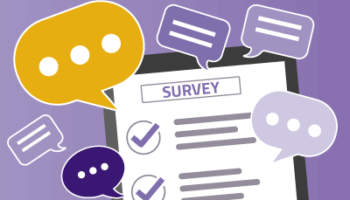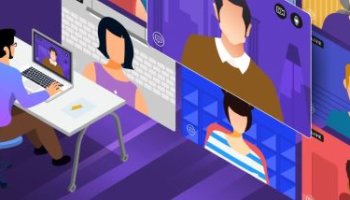LGBT people affected by neurological conditions report worse mental wellbeing, My Neuro Survey shows
03/10/2022
Today we publish new analysis of My Neuro Survey responses that shows that people affected by neurological conditions and who identify as gay, lesbian, bisexual or trans often report worse experiences of care, including poor access to support for their mental wellbeing.
Using data gathered through My Neuro Survey, the largest patient experience survey of its kind in the UK, The Neurological Alliance undertook a short analysis of responses according to reported sexual orientation and gender identity. The UK wide survey was run in partnership with the Neurological Alliances of Scotland and Wales and the Northern Ireland Neurological Charities Alliance. 406 people who responded to the survey identified as lesbian, gay or bisexual. In addition, a small proportion of people (27) identified as trans.
Both sexual orientation and gender, including gender reassignment, are protected characteristics under the UK Equality Act 2010. Despite this there is evidence that lesbian gay, bisexual and trans (LGBT) people in the UK face higher inequalities in health satisfaction and outcomes. Trans people often report worse experiences when accessing health services with 40% of trans respondents to the National LGBT Survey (2018) experiencing at least one negative experience when accessing or trying to access public healthcare services in the UK, compared to just 13% of cisgender respondents. In a separate study by Stonewall, 41% of trans people said healthcare staff lacked understanding of specific trans health needs.
Key findings from My Neuro Survey
Our short analysis highlights the experiences shared with us by people affected by neurological conditions who identify as lesbian, gay bisexual or trans. Importantly, we identified areas of variation in experience including around impact on mental health and wellbeing, access to specialists and delays to treatment and care.
We found:
- Bisexual respondents were more likely to report experiencing delays to neurological care or treatment in the last 12 months compared to those who identified as gay or lesbian or heterosexual.
- Gay, lesbian, bisexual and trans respondents were more likely to report that their neurological condition made their mental wellbeing much worse, and that the effects of the COVID-19 pandemic had worsened their mental health.
- Trans and bisexual respondents who were referred or directed to support for their mental wellbeing were significantly more likely to report that this did not make them feel better or more positive.
- Gay or lesbian and bisexual respondents were more likely to report not being given an explanation or being directed to any information when they first found out about their neurological condition.
- Gay or lesbian and bisexual respondents were more likely to report that their health and care was not joined up and centred on their priorities. Along with trans respondents they were also more likely to report that information was not passed effectively between people who care for them.
What next?
Georgina Carr, Chief Executive of The Neurological Alliance, said:
“It is vital that we better understand the experiences of all people affected by neurological conditions in order to tackle unwarranted variation in care, including people who identify as LGBTQIA+. Poor health outcomes and inequities in access to care amongst the LGBTQIA+ community are well documented, but we know little about inequalities among the LGBTQIA+ neurological community.
“We must redouble our efforts as a sector to ensure we are listening and supporting everyone living with a neurological condition – this means ensuring research is truly accessible to all, and that every service for people affected by neurological conditions plays their part as a vital ally of the LGBTQIA+ community. Importantly, we need the UK Government to step up and back the 1 in 6 living with a neurological conditions and establish a Neuro Taskforce, so that we can drive the improvements to neuro treatment, care and support across the UK that are so sorely needed.”
#BackThe1in6 people living with a neuro condition in the UK. Add your name to the thousands across the country in calling for a Neuro Taskforce today.





